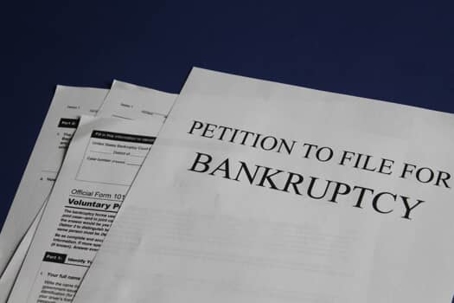For most people, bankruptcy can be filed in one of two forms: Chapter 7 or Chapter 13. In some contexts, Chapter 7 bankruptcy is called liquidation bankruptcy and Chapter 13 is called debtor’s bankruptcy. But what does that mean for you as someone who needs to file for some sort of bankruptcy or another? Is it better to file for Chapter 7 or Chapter 13? The answer depends entirely on your financial situation.
Many people benefit the most from Chapter 7. But many others benefit more from Chapter 13. Finding the better option for you requires an understanding of what each Chapter can do – and often the assistance of a bankruptcy attorney.
Pros & Cons of Chapter 7 Bankruptcy
Debtors who use Chapter 7 bankruptcy usually have truly overwhelming debt. There is no feasible alternative to eliminate their debt and living under its shadow is unthinkable.
Benefits of Chapter 7 bankruptcy include:
- The process can take less than a year to conclude for most filers.
- Many dischargeable debts are eliminated outright.
- State and/or federal exemptions can protect certain property from being sold or repossessed.
With these benefits in mind, Chapter 7 bankruptcy is often the best option for people who own small amounts of property and who have debts owed mostly through medical bills and credit cards. A downside of Chapter 7 is that it is not available to just anyone. You need to pass a means test to determine if your income is less than the median income in your state for your family size. If you make more than the average family, then you probably can’t use Chapter 7.
Another issue some people have with Chapter 7 is that it does have the potential to significantly impact credit scores. There are ways to rebuild credit, though, so you should not be completely discouraged just because your credit score could go down.
Pros & Cons of Chapter 13 Bankruptcy
Chapter 13 bankruptcy could be the better option for you if your debt is not overwhelming or if it is mostly comprised of non-dischargeable debts that can’t be removed in Chapter 7. For example, student loans, child support payments, other monies owed due to court orders, and many tax debts can’t be discharged. To handle those debts, Chapter 13 bankruptcy attempts to reduce what is owed and repay that amount across the next three to five years.
The main concept of Chapter 13 bankruptcy is creating a debt repayment plan that you, all creditors, and the court agree is reasonable. While that plan is being carried out, you are expected to use all of your disposable income to pay your debts as best you can.
Expenses that are not considered disposable are those related to:
- Food, shelter, and clothing
- Transportation
- Taxes
- Healthcare and medical treatments
- Court-ordered payments
- Childcare
- Some costs of education
- And more
If you are successful, then the remaining debts at the end of the plan can be discharged, if eligible. You will also likely have kept most or all of your important property, like your home or automobile. The impact on your credit score can also be much smaller than if you filed for Chapter 7 bankruptcy.
Although, Chapter 13 bankruptcy does have some “downsides.” Most notably, if you miss a single payment in your debt repayment plan, then creditors can ask the court to dismiss the entire bankruptcy and you will be back to the beginning, minus whatever costs you have already spent to begin your Chapter 13 bankruptcy filing. If you are skeptical that you can commit 100% of your disposable income to your debt repayment plan and still not miss a payment, then Chapter 13 might not be the best choice.
Who Can Help You Choose a Bankruptcy Chapter?
A local bankruptcy attorney who understands your state’s rules and exceptions during bankruptcy can help you decide if you should file for Chapter 7 or Chapter 13. You might not even need to file for bankruptcy at all if there’s another alternative debt resolution option.
For people living in Glendale or Santa Clarita, the Law Offices of Wax & Wax can help solve your bankruptcy worries. We would be happy to explore your options with you and guide you throughout your bankruptcy. Our bankruptcy attorneys can also represent you during any interactions with creditors and the court if you prefer.
Call us at (818) 946-0608 or fill out an online contact form to learn more.

